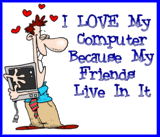I'm supposed to be packing and making (literally) last minute arrangements for my Nashville trip....but I was so inspired the other day by a radio program on NPR that I wanted to share what I heard and the mental rabbit trails that the program lead me down. I believe in giving credit where it's due- but I have no idea what show I was listening to. The guest speaker was talking about linguistics and vocabulary and the art of teaching your children. Obviously, children are not born with eloquent (or any) vocabulary and learn it by hearing words used in context. Children are not limited. The guest host was instructing parents not to "dummy down" your conversation with your children. Children will pick up the meanings of words and will emulate the words into their own conversations. Sometimes, whether we like it or not.
I'm reminded of my younger cousin who thought the front door was a "d*mn door"...and many times he'd say something like, "Mommy! Someone's knocking at the d*mn door!" Obviously, he was only repeating what he had heard and was trying to use the word in it's correct context, as was exemplified by his parents. They hear. They process. They repeat.
That's what learning is.
learn·ing/ˈlərniNG/
| Noun: |
|
So, this lead me to think back to my own childhood. Realizing that many of the things I do and the way I do them were absorbed in an osmosis sort of way. Even the mundane things.( Ie: only washing dishes on the right side of the sink, rinsing in the left and drying to the far left.) My mother doesn't eat red meat. Never has. Guess what, neither do I. I'm repulsed by it, usually. But, I asked myself, am I really? Is it that I REALLY don't like it- or have I been trained not to like it by example? Then, my mind goes down another bunny trail, my Father loved steaks and meat and ate them heartily. So, why is it that I learned from the negative reaction towards it than the positive? No one ever said "THOU SHALT NOT" wash on the left hand side of the sink, nor did my mother ever tell me to not eat a steak...it was taught by EXAMPLE. Without meaning to instruct a concept, I learned it...and have passed it on. My oldest daughter would rather eat a plate of hamburger toppings than the actual burger.
So, beyond vocabulary....beyond dish washing and meat eating, and all the other peculiar traits that I've adopted over the years...I have to wonder....WHAT about LOVE, COMPASSION, EMPATHY?
Am I teaching these "gifts"? Am I passing on a legacy to my children- do I demonstrate how to care for others? Do I give cheerfully? Will my children grow into adults who give without expecting anything in return? Will they exercise the art of empathy instead of judgement? Love instead of jury? Where have I unwittingly taught them to perceive something negatively? (by not being a cheerful giver, hypocritically being a reluctant servant, a huffy friend, giving a sharp answer to a wounded heart etc, etc....)
For the past week or so, these thoughts have rattled around in the mind and have taken root in my heart. Last night I watched my children interact with others at VBS through new eyes. I was watching my kiddos, but looking past them, for signs of MYSELF in smaller, younger bodies. Looking for familiar traits mirrored back at me from across the church gymnasium. Traits that I haven't meant to instill. Prejudices that I didn't realize were contagious. Watching yourself in the next generation can be a scary realization, gladly there were some attributes that I was pleased to recognize from these little mirrors of mine. :)
I hope this post wasn't a downer to anyone. In all actuality, it's quite encouraging to me that I can begin anew- each day- as a fresh example. I will endeavor to teach by exemplifying positive attributes, living life to the fullest, embracing, engaging positive influences and empowering (through encouragement) others in their personal endeavors, by loving unconditionally....and above all keep shinin' this little light of mine. :)
Keep Shining On ~ Cass
"Children are the living messages we send to a time we will not see." John W. Whitehead, founder, Rutherford Institute



